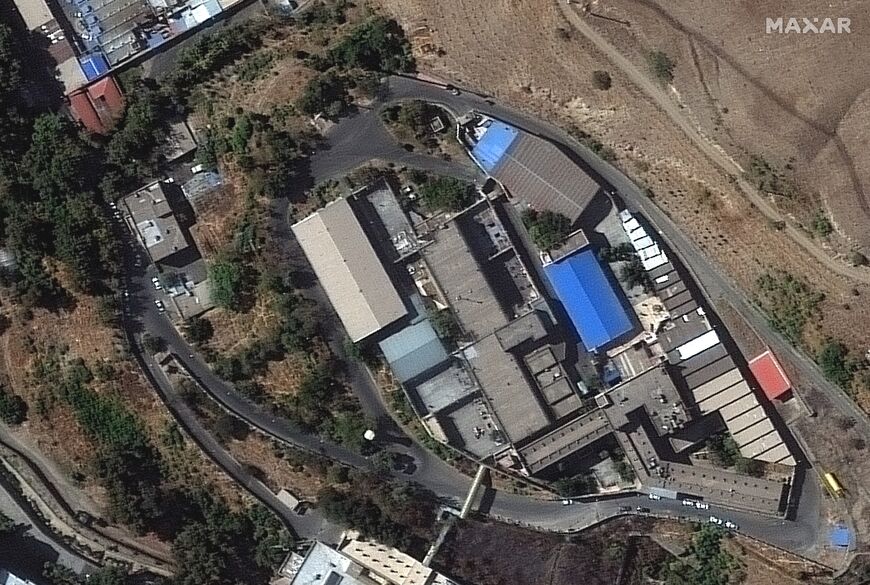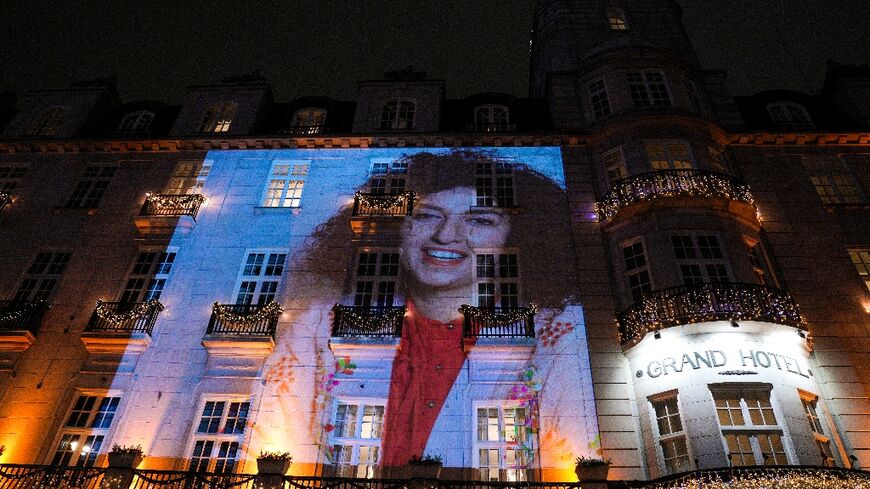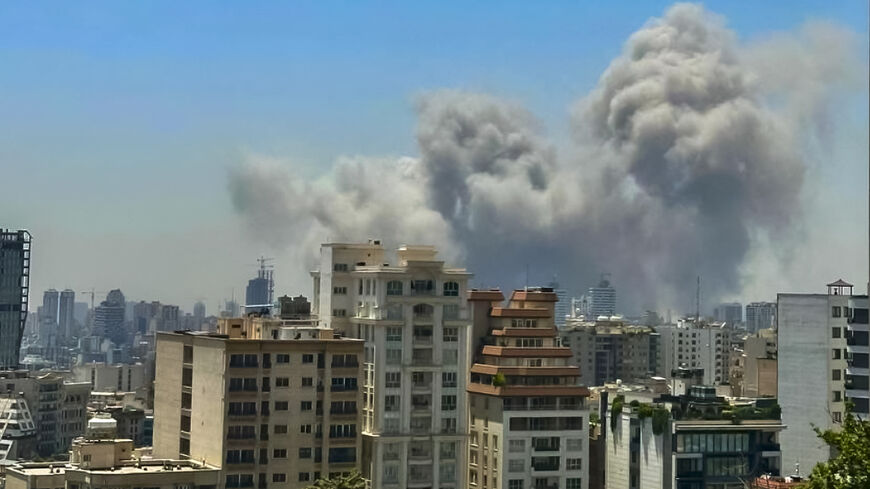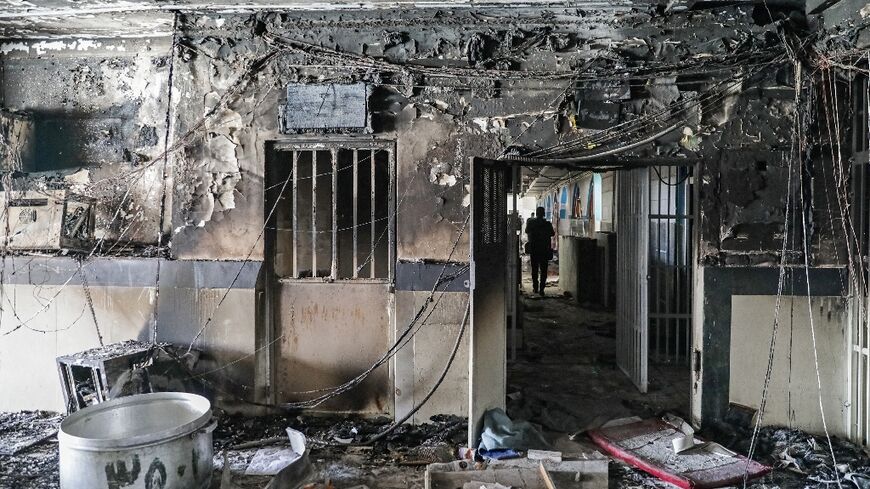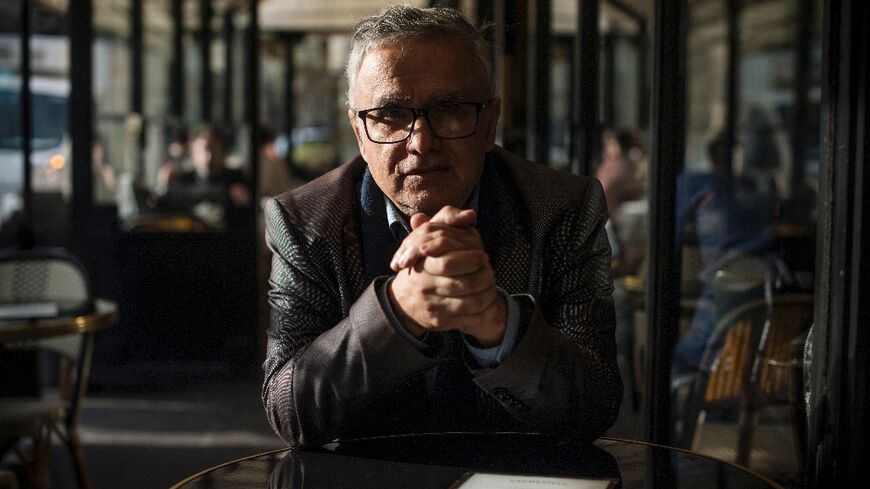'Nowhere to escape': Israel strike intensifies distress in notorious Iran jail
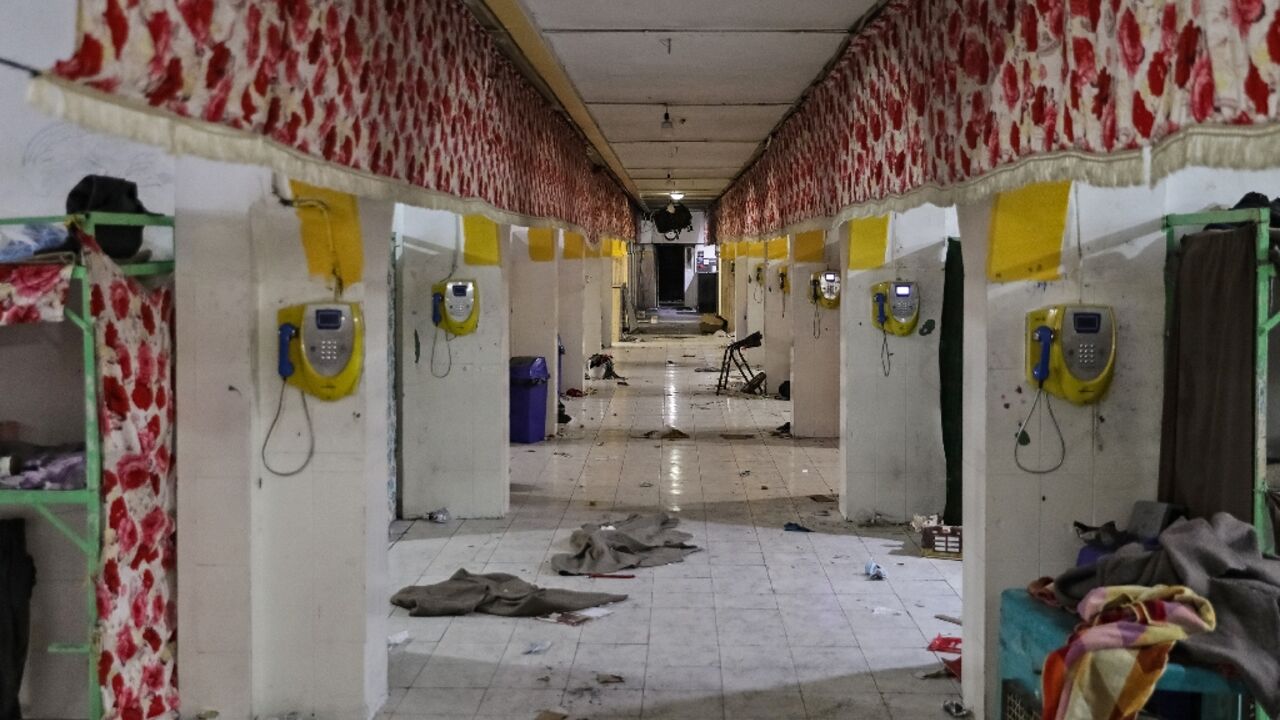
Alarm has intensified over the welfare of inmates after an Israeli strike on Evin prison in Tehran, one of Iran's most notorious penal complexes which haunts prisoners long after they are released.
Rights groups say that Evin, which is believed to have the capacity for hundreds of inmates, is home to dozens of "political prisoners" innocent of any crime, including foreigners, and women who are kept in a separate wing.
Israel targeted the prison in an air strike on Monday, before an American call for a ceasefire, destroying not just the front entrance but also inner parts of the complex, according to activists who had contact with prisoners, and also killing several people, according to the Iranian judiciary.
Israeli Foreign Minister Gideon Saar hailed the strike by posting "long live freedom!" while former UK premier Boris Johnson said it was "great to see that Israel has blown the doors off Evin prison".
But rights groups accused Israel of causing only additional anguish to detainees who are already deeply distressed and at least some of whom have been relocated to other prisons.
The New York-based Center for Human Rights in Iran (CHRI) said the strike caused severe damage to critical areas including the women's section, ward 8, believed to house political prisoners, the infirmary and the prosecutor's office.
Nobel Peace Prize winner Narges Mohammadi, who was held in the prison until being allowed temporary leave for medical reasons last year, said that as a result of the strike the infirmary was destroyed and prisoners were under intensified security conditions or relocated.
"Families are filled with fear and anxiety," she said in a statement.
- 'Distressed prisoners' -
The judiciary's Mizan Online website confirmed that prisoners had been transferred to other facilities within Tehran province but did not specify how many inmates were moved.
Judiciary spokesman Asghar Jahangir said multiple people were killed and wounded in the strike, "including administrative and judicial staff, visiting civilians, family members of inmates and the inmates themselves".
Mohammadi expressed concern that among those killed were family members of inmates who had visited the prosecutor's office at the prison -- located close to the entrance –- seeking information about their loved ones' cases.
The Norway-based Hengaw rights group said hours after the attack Evin prisoners were transferred by bus to other prisons in the region and the women inmates to Qarchak prison outside Tehran which has a dire reputation for its conditions.
Amnesty International said it was "extremely distressed" by the attack on the prison "where hundreds of prisoners, including political dissidents and human rights defenders" are held.
"Prison security forces must not use force or firearms against distressed prisoners," it said.
The CHRI published a letter signed by inmates -- whose names were withheld for their safety -- accusing the Evin authorities of "creating a highly repressive atmosphere" rather than helping prisoners during the strikes.
"We had nowhere to escape during the bombing, nor have we had any refuge from the organised violence that has crushed our lives and dignity for years," they said, adding several prisoners had been injured as they rushed downstairs in search of safety.
- 'Huge complex' -
British-Iranian woman Nazanin Zaghari-Ratcliffe, who was held in Evin for several years, wrote in Britain's Guardian newspaper she vehemently opposed the bombing of the prison by Israel.
"So bringing down those gates might have seemed like a symbolic act for faraway media. But it did not feel like it made anyone safe inside," she said.
Built in 1972 under the reign of the former shah Mohammad Reza Pahlavi, Evin has long been a looming presence, looking down on Tehran from its northern limits in the foothills of the Alborz mountains.
In October 2022, at the height of nationwide protests against the authorities, Evin was hit by a fire, with reports of gunshots, that left at least eight inmates dead. The circumstances of the blaze remain murky.
"It's a huge complex," said Taghi Rahmani, husband of Narges Mohammadi, now living in exile in France, who spent time in this prison between 1986 and 1994, and in 2010-2011, before fleeing Iran.
He pointed in particular to section 209 -- run by the intelligence ministry for political prisoners -- as a "prison within a prison".
Louis Arnaud, a Frenchman held for two years in Evin until his release last year, said he feared for his former cellmates. "In these very dark days, we don't know what could happen in this building."
